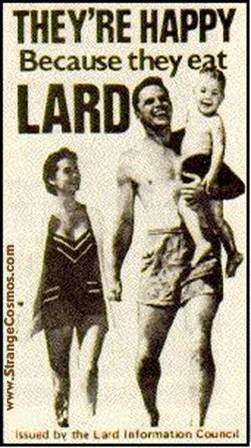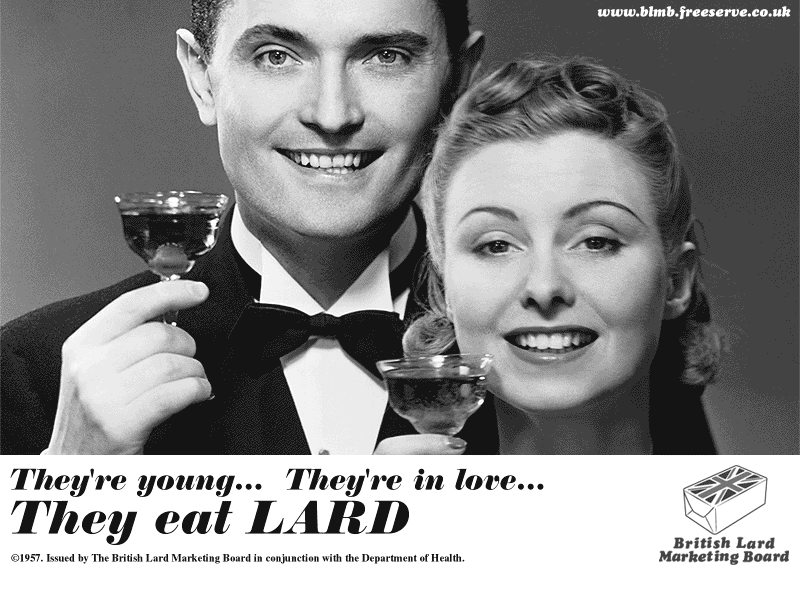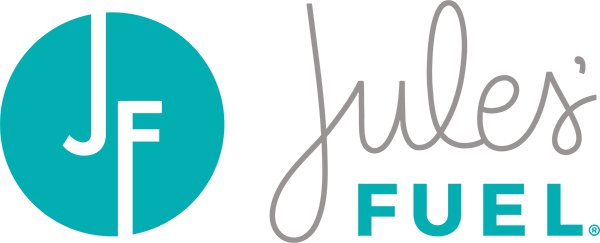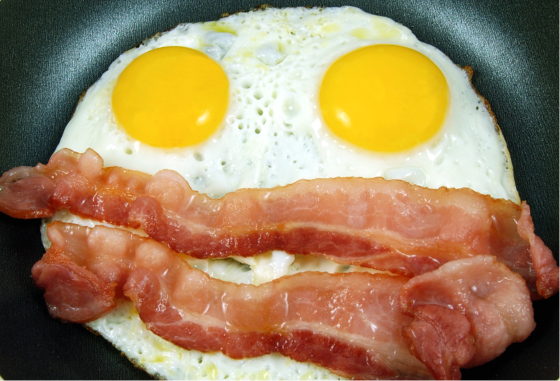I love lard.
Eggs cooked in lard.
Chicken cooked in lard.
Sweet potato hash fried in lard.
Are you cringing yet?
I grew up thinking that bacon and its grease was the devil.
Didn’t we all? Not our grandparents or great-grandparents, necessarily.
In the 19th century and early 20th century, lard was very popular and used as a substitute for butter  during World War II. It was cheaper than most vegetable oils, and was common in most people’s diet until the Industrial Revolution made vegetable oils more common and more affordable.
during World War II. It was cheaper than most vegetable oils, and was common in most people’s diet until the Industrial Revolution made vegetable oils more common and more affordable.
Somewhere along the lines in the late 20th century, it was decided that lard was less healthy than vegetable oils because of its high saturated fat and cholesterol content.
BUT, unlike margarine and vegetable shortening:
- Lard has no trans fat
- Lard is one of the few edible oils with a relatively high smoke point (which means there is less likelihood of oil oxidation and toxic byproducts from cooking at high heat)
Furthermore, Gary Taubes, contributing correspondent to Science magazine and New York Times best seller, does an awesome job of breaking down the health benefits of lard in his book, Why We Get Fat:
- 47% of lard is monounsaturated fat (Universally a “good” fat; raises HDL cholesterol and lowers LDL cholesterol – both good things. 90% of monounsaturated fat is beneficial oleic acid found in olive oil, too!)
- 40% of lard is saturated fat, but 1/3 of that is the same good stearic acid found in chocolate
- 12% is polyunsaturated, which lowers LDL cholesterol and has no effect on HDL cholesterol
Love on Lard: Why Eating Bacon is Healthy
Taubes goes on to state,
“In total, more than 70 percent of the fat in lard will improve your cholesterol profile compared with what would happen if you replaced that lard with carbohydrates. The remaining 30 percent will raise LDL cholesterol (bad) but also raise HDL (good).
In other words, and hard as this may be to believe, if you replace the carbohydrates in your diet with an equal quantity of lard, it will actually reduce your risk of having a heart attack.”
In other words, getting back to basics with the eggs and bacon our grandparents and great-grandparents grew up on will do “lards” for your health!
Note: Do make sure your lard comes from good, mostly organic sources; many bacon and pork products can be loaded with nitrates and other preservatives.

References:
Taubes, Gary. Why We Get Fat. New York: Knopf, Borzoi Books, 2011.

